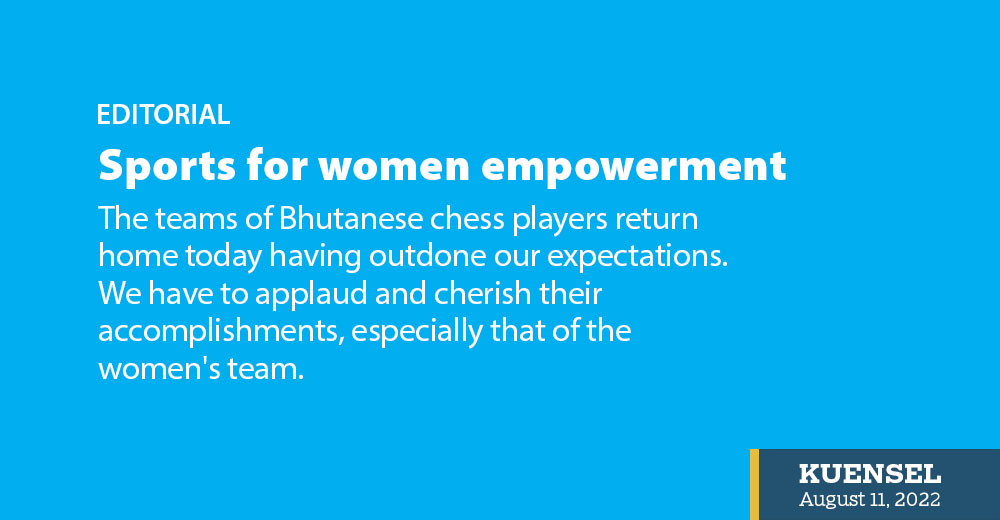The teams of Bhutanese chess players return home today having outdone our expectations. We have to applaud and cherish their accomplishments, especially that of the women’s team.
This is yet another big step toward women’s empowerment. This one win will lead to another.
Every time one kicks a ball or shoots an arrow, it will demonstrate not only physical strength but also leadership and strategic thinking, taking them a step closer to gender equality.
It has been recognised the world over that sport can be a force to amplify women’s voices and bring down gender barriers and discrimination in its various forms. Women in sport defy the misperception that they are weak or incapable. There are ample evidence that participation in sports can help break-down gender stereotypes, improve girls’ and women’s self-esteem and contribute to the development of leadership skills.
Our girls and women are far more visible in sports today than at any previous point in history. Archer Karma, Cricketer Anju Gurung, Shooter Lenchu Kunzang, and Paralympian Sapuna Subba have come to the fore and excelled in their disciplines in recent years. That is not to say that women and girls do not face problems in accessing sports as athletes and spectators, inequalities in professional sports, media coverage and sports media, among others.
Our grassroots sports programmes over the years have gone beyond the urban areas into the dzongkhags. We cannot be content until each gewog or community schools has quality sports facilities and qualified instructors.
Ensuring the safety of girls and women at our sports facilities and avenues from sexual abuse or harassment is one major task at hand. If we are unable to address it from the beginning it will breed like cancer and kill many budding talents before they can realise their potential or force promising athletes to quit untimely. A nation can lose a gem to the folly of a few insensitive people.
The completion of the sports academy for girls in Gelephu can bring on board a lot of talents and groom them in time. There is already an increasing number of women certified to officiate as referees and coaches.
In other parts of the world, women and girls have to fight for their right to engage in sports. The advantage in Bhutan is that our women and girls don’t experience half the problems that other women elsewhere do. That in itself is a huge milestone and springboard for more investment and emphasis.


